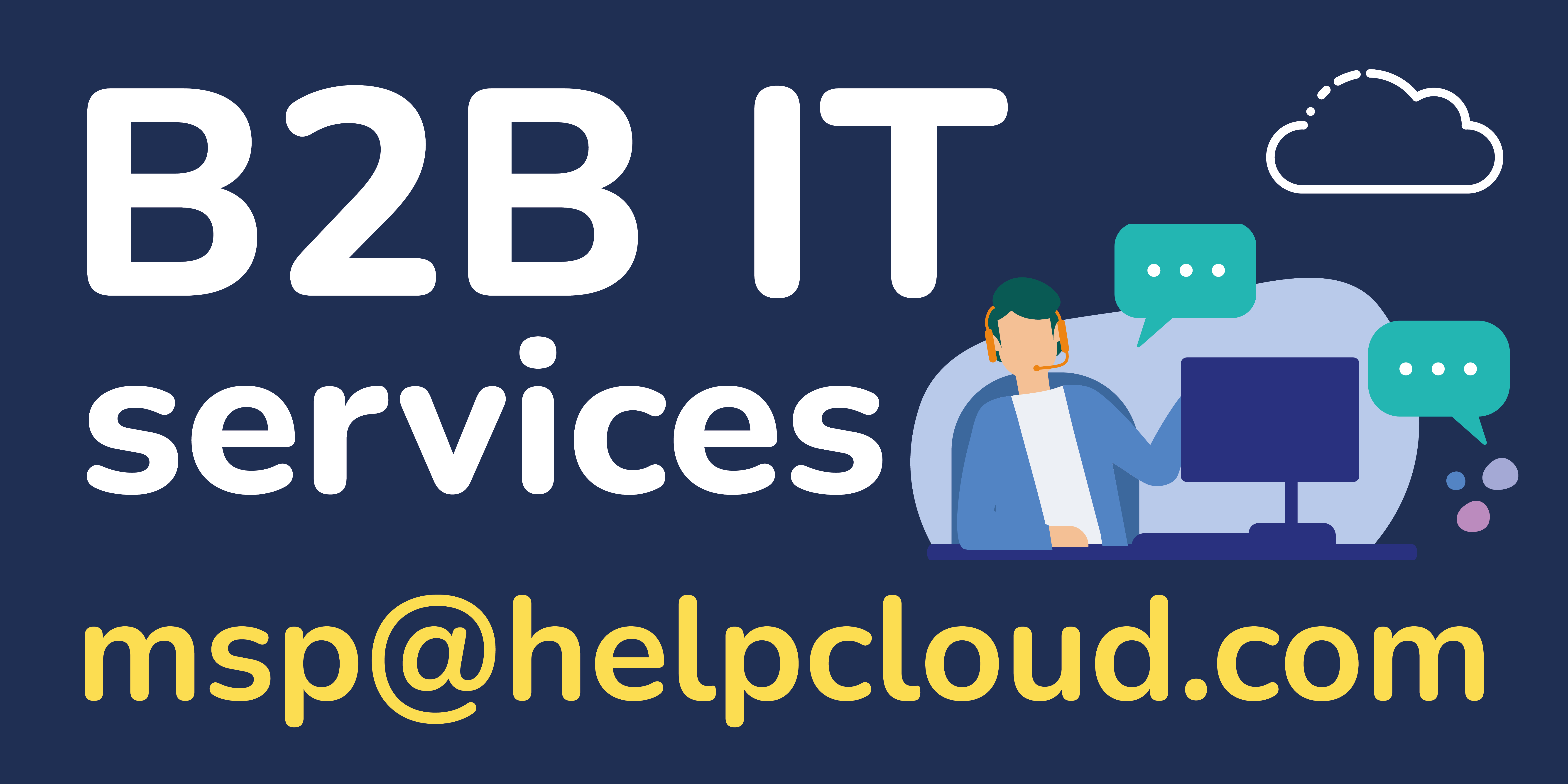In the dynamic world of Information Technology (IT), Managed Service Providers (MSPs) serve as the unsung heroes, powering businesses with seamless operations, enhanced security, and unparalleled support. As we stride into 2024, the MSP space is poised for a transformative journey, brimming with innovation and promising trends that will reshape the IT landscape. Let’s delve into the exhilarating developments that are set to redefine how businesses harness technology through MSPs.
1. AI-Powered Operations
Prepare to witness the fusion of artificial intelligence (AI) with MSP services, ushering in a new era of efficiency and predictive maintenance. AI algorithms are increasingly being integrated into MSP platforms, enabling proactive monitoring, rapid troubleshooting, and predictive analytics. With AI-driven automation, MSPs can preemptively identify and resolve potential issues, ensuring uninterrupted business operations while optimizing resource allocation.
Predictive Maintenance: Proactively Addressing Issues
AI algorithms are revolutionizing MSP operations by enabling predictive maintenance. By analyzing vast amounts of data in real-time, MSPs can identify patterns and anomalies that may indicate potential issues before they escalate. This proactive approach minimizes downtime and ensures uninterrupted business operations.
Real-time Monitoring: Enhancing Efficiency and Reliability
With AI-powered real-time monitoring, MSPs can keep a vigilant eye on their clients' IT infrastructure, detecting and addressing issues as soon as they arise. This not only enhances operational efficiency but also improves the reliability of IT systems, providing clients with peace of mind knowing that their systems are continuously monitored and maintained.

Automation: Streamlining Routine Tasks for Seamless Operations
AI-driven automation streamlines routine tasks such as patch management, software updates, and system configurations. By automating these processes, MSPs can optimize resource allocation, reduce human error, and free up their teams to focus on more strategic initiatives. This not only improves operational efficiency but also enables MSPs to deliver faster and more responsive service to their clients.
2. Cybersecurity Fortification
In an era marred by cyber threats, MSPs are emerging as formidable guardians of digital assets. The emphasis on cybersecurity within the MSP space is reaching new heights, with a focus on advanced threat detection, proactive risk mitigation, and robust compliance frameworks. From next-generation firewalls to AI-driven threat intelligence, MSPs are fortifying their arsenals to provide clients with unparalleled protection against evolving cyber threats.
Multi-Layered Defense: Protecting Against Sophisticated Threats
MSPs are deploying a multi-layered defense strategy to protect their clients' digital assets from evolving cyber threats. This approach combines advanced security solutions such as next-generation firewalls, endpoint protection, and SIEM systems to create a comprehensive security posture that safeguards against a wide range of threats, from malware and ransomware to insider attacks and advanced persistent threats (APTs).
Proactive Threat Hunting: Staying Ahead of Emerging Risks
In addition to traditional security measures, MSPs are adopting proactive threat hunting techniques to detect and neutralize emerging threats before they can cause harm. By continuously monitoring network traffic, analyzing security logs, and leveraging threat intelligence feeds, MSPs can identify suspicious activities and potential security vulnerabilities, allowing them to take proactive measures to mitigate risks and strengthen their clients' security posture.
Compliance Assurance: Ensuring Regulatory Adherence and Data Security
Compliance with industry regulations and data security standards is a top priority for businesses across all sectors. MSPs are helping their clients navigate the complex landscape of regulatory requirements by providing expertise in compliance frameworks such as GDPR, HIPAA, and PCI DSS. By implementing robust security controls, conducting regular audits, and providing ongoing compliance support, MSPs ensure that their clients remain compliant with relevant regulations and protect sensitive data from unauthorized access and data breaches.

3. Cloud Migration Mastery
The migration to cloud infrastructure continues to gather momentum, and MSPs are at the forefront of this paradigm shift. With expertise in cloud architecture, data migration, and hybrid cloud management, MSPs are empowering businesses to harness the scalability, flexibility, and cost-efficiency of cloud platforms. Whether it’s transitioning legacy systems to the cloud or optimizing cloud infrastructure for peak performance, MSPs are the catalysts driving successful cloud adoption strategies.
Expert Guidance: Navigating the Cloud Journey with Confidence
MSPs play a crucial role in guiding businesses through the complexities of cloud migration. With their expertise in cloud architecture and deployment models, MSPs help clients assess their IT infrastructure, identify workloads suitable for the cloud, and develop a migration strategy that aligns with their business objectives. This ensures a smooth and successful transition to the cloud, minimizing disruption and maximizing the benefits of cloud computing.
Hybrid Cloud Solutions: Bridging On-Premises and Cloud Environments
Many businesses opt for a hybrid cloud approach, leveraging both on-premises infrastructure and public cloud services to meet their specific requirements. MSPs assist clients in designing and implementing hybrid cloud solutions that seamlessly integrate on-premises and cloud environments, allowing for greater flexibility, scalability, and cost-efficiency. By leveraging the strengths of both deployment models, businesses can optimize their IT infrastructure to meet changing demands and drive innovation.
Optimization Strategies: Maximizing Performance and Cost-Efficiency
Once in the cloud, optimizing cloud infrastructure becomes essential to ensure optimal performance and cost-efficiency. MSPs help clients optimize their cloud environments by right-sizing resources, implementing cost management strategies, and leveraging automation tools to streamline operations. By continuously monitoring and optimizing cloud workloads, MSPs help businesses maximize the value of their cloud investments, enabling them to achieve their business objectives more effectively and efficiently.
4. Hyper-Personalized Services
As businesses strive to deliver exceptional customer experiences, MSPs are embracing hyper-personalization to cater to diverse client needs. Through data-driven insights and client-centric approaches, MSPs are tailoring their services to align with the unique requirements and objectives of each organization. From customized service level agreements (SLAs) to personalized support models, MSPs are fostering deeper partnerships that transcend traditional vendor-client dynamics.
Customized SLAs: Tailoring Solutions to Unique Business Needs
No two businesses are alike, and MSPs recognize the importance of tailoring their services to meet the unique needs and objectives of each client. MSPs work closely with clients to understand their specific requirements and develop customized service level agreements (SLAs) that outline the scope of services, performance metrics, and response times tailored to their individual needs. This ensures that clients receive personalized support that aligns with their business goals and objectives.

Client Collaboration: Co-Creating Value through Deep Partnerships
Effective collaboration between MSPs and their clients is essential for success. MSPs foster deep partnerships with clients, working collaboratively to understand their business challenges, identify opportunities for improvement, and develop innovative solutions that drive business value. By establishing open lines of communication and building trust-based relationships, MSPs become trusted advisors to their clients, guiding them through their digital transformation journey and helping them achieve their strategic objectives.
Solution Architecture: Designing Bespoke Solutions for Optimal Results
MSPs leverage their expertise and experience to design bespoke solutions that address the unique needs and challenges of their clients. Whether it's designing a scalable IT infrastructure, implementing advanced security solutions, or optimizing cloud environments, MSPs tailor their solutions to deliver optimal results for their clients. By taking a holistic approach to solution architecture and considering factors such as scalability, security, and cost-effectiveness, MSPs help clients achieve their business objectives more effectively and efficiently.
5. Ecosystem Expansion
Collaboration is the cornerstone of success in the modern IT landscape, and MSPs are expanding their ecosystems to deliver comprehensive solutions to clients. Through strategic partnerships with technology vendors, industry experts, and niche service providers, MSPs are augmenting their capabilities to address a myriad of IT challenges. By harnessing the collective expertise of ecosystem partners, MSPs are unlocking new avenues for innovation and value creation.
Strategic Partnerships: Leveraging Collective Expertise for Innovation
MSPs are expanding their networks through strategic partnerships with technology vendors, industry experts, and niche service providers. By collaborating with trusted partners, MSPs gain access to specialized expertise, cutting-edge technologies, and innovative solutions that enhance their service offerings. These strategic partnerships enable MSPs to deliver comprehensive solutions that address complex IT challenges effectively and provide greater value to their clients.
Complementary Technologies: Integrating Best-of-Breed Solutions
Through partnerships with technology vendors, MSPs can integrate best-of-breed solutions into their service offerings to address specific client needs. Whether it's integrating third-party security solutions, leveraging specialized tools for network monitoring and management, or adopting emerging technologies such as artificial intelligence and machine learning, MSPs have access to a wide range of complementary technologies that enhance their capabilities and enable them to deliver innovative solutions that meet the evolving needs of their clients.

Niche Expertise: Accessing Specialized Skills for Unique Requirements
In addition to technology vendors, MSPs partner with niche service providers and industry experts to access specialized skills and expertise for unique client requirements. Whether it's providing specialized consulting services, niche cybersecurity solutions, or industry-specific expertise, these partnerships enable MSPs to deliver tailored solutions that address the specific challenges faced by their clients. By leveraging the collective expertise of their ecosystem partners, MSPs can provide comprehensive solutions that drive business outcomes and help their clients achieve their strategic objectives.
6. Embrace of DevOps Culture
The convergence of development and operations, epitomized by the DevOps philosophy, is reshaping how IT infrastructures are managed and optimized. MSPs are embracing the DevOps culture, fostering collaboration, automation, and continuous improvement within their service delivery frameworks. By integrating DevOps principles into their operations, MSPs are accelerating software development cycles, enhancing agility, and driving innovation for their clients.
Collaboration and Automation: Driving Efficiency and Agility
MSPs are embracing the DevOps culture, which emphasizes collaboration, automation, and continuous improvement, to drive efficiency and agility in their operations. By breaking down silos between development and operations teams and implementing automation tools and practices, MSPs can streamline their service delivery processes, accelerate software development cycles, and enhance agility. This enables MSPs to respond more quickly to client needs, deliver faster and more reliable services, and drive innovation in their operations.
Cultural Transformation: Fostering Innovation and Continuous Improvement
The adoption of DevOps principles requires a cultural transformation within MSPs and their client organizations. MSPs are fostering a culture of innovation, experimentation, and continuous improvement by encouraging collaboration, empowering teams to take ownership of their work, and embracing a mindset of learning and adaptation. By instilling DevOps practices and values in their organizations, MSPs are driving cultural transformation that enables them to deliver higher-quality services, respond more effectively to client needs, and stay ahead of the competition.
Client Empowerment: Instilling DevOps Practices for Business Success
MSPs are not only adopting DevOps practices within their own organizations but also helping their clients embrace DevOps principles to drive business success. By working closely with clients to assess their current processes, identify areas for improvement, and develop DevOps strategies and roadmaps, MSPs empower clients to transform their IT operations and accelerate their digital transformation journey. This collaborative approach enables clients to achieve greater agility, innovation, and business value, ultimately driving their success in an increasingly competitive marketplace.
In the End...and New Beginnings
As we embark on this exhilarating journey through the MSP space, one thing is abundantly clear: the future of IT is bright, fueled by innovation, collaboration, and a relentless pursuit of excellence. MSPs are not just service providers; they are catalysts of digital transformation, empowering businesses to thrive in an increasingly complex and competitive landscape. So, buckle up and get ready to embrace the future, where possibilities are limitless, and the only constant is innovation.

